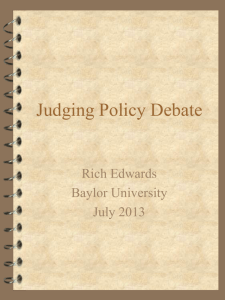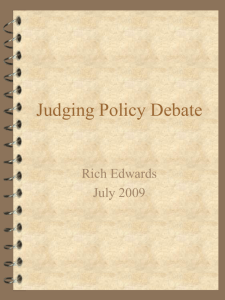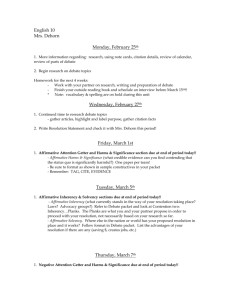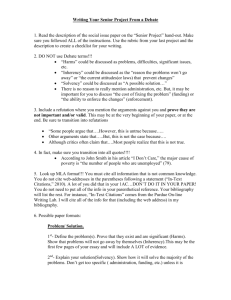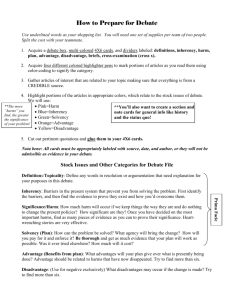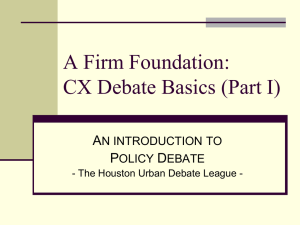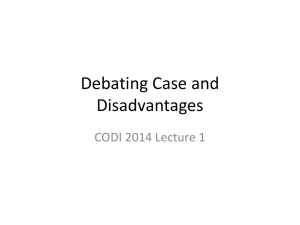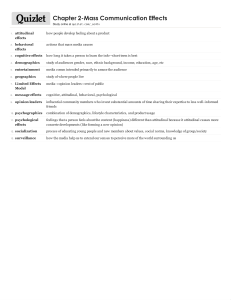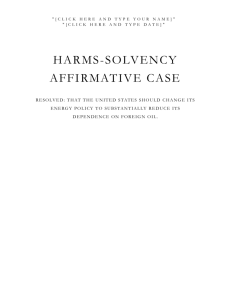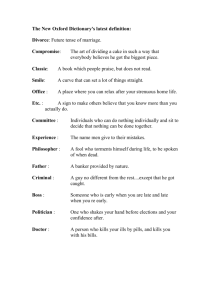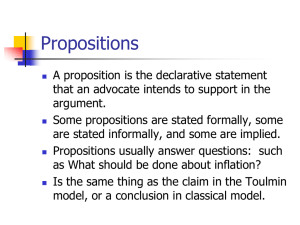Stock Issues of Policy Analysis Ill (Harm) Nature: Are there any
advertisement
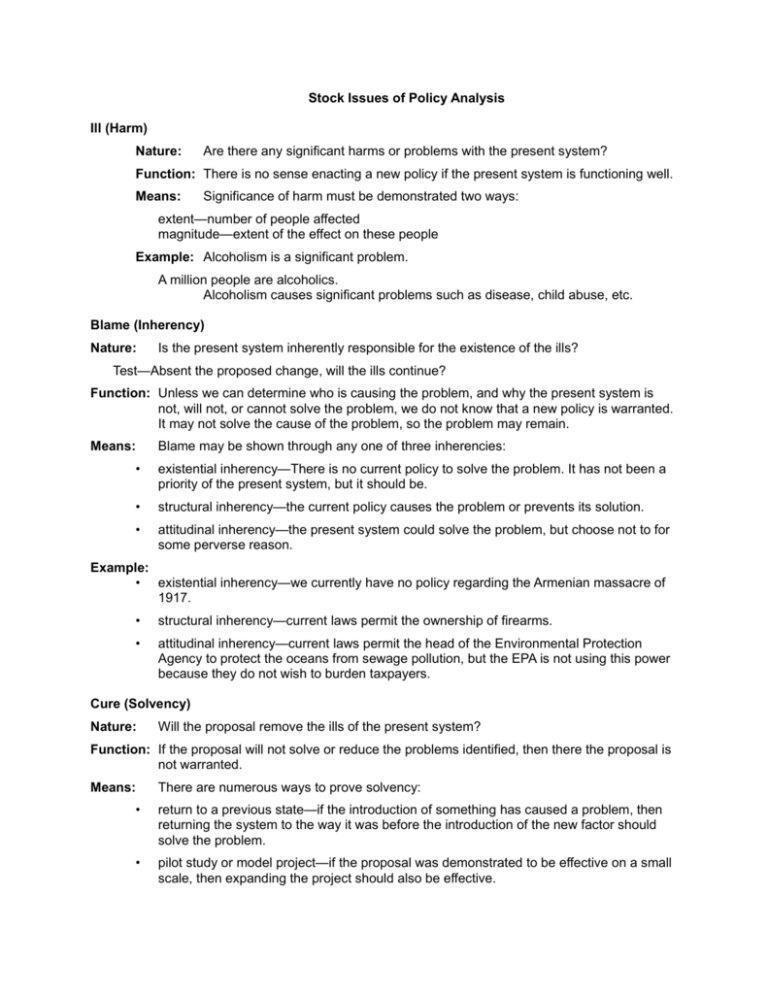
Stock Issues of Policy Analysis Ill (Harm) Nature: Are there any significant harms or problems with the present system? Function: There is no sense enacting a new policy if the present system is functioning well. Means: Significance of harm must be demonstrated two ways: extent—number of people affected magnitude—extent of the effect on these people Example: Alcoholism is a significant problem. A million people are alcoholics. Alcoholism causes significant problems such as disease, child abuse, etc. Blame (Inherency) Nature: Is the present system inherently responsible for the existence of the ills? Test—Absent the proposed change, will the ills continue? Function: Unless we can determine who is causing the problem, and why the present system is not, will not, or cannot solve the problem, we do not know that a new policy is warranted. It may not solve the cause of the problem, so the problem may remain. Means: Blame may be shown through any one of three inherencies: • existential inherency—There is no current policy to solve the problem. It has not been a priority of the present system, but it should be. • structural inherency—the current policy causes the problem or prevents its solution. • attitudinal inherency—the present system could solve the problem, but choose not to for some perverse reason. Example: • existential inherency—we currently have no policy regarding the Armenian massacre of 1917. • structural inherency—current laws permit the ownership of firearms. • attitudinal inherency—current laws permit the head of the Environmental Protection Agency to protect the oceans from sewage pollution, but the EPA is not using this power because they do not wish to burden taxpayers. Cure (Solvency) Nature: Will the proposal remove the ills of the present system? Function: If the proposal will not solve or reduce the problems identified, then there the proposal is not warranted. Means: There are numerous ways to prove solvency: • return to a previous state—if the introduction of something has caused a problem, then returning the system to the way it was before the introduction of the new factor should solve the problem. • pilot study or model project—if the proposal was demonstrated to be effective on a small scale, then expanding the project should also be effective. • foreign analogies—if a foreign nation has enacted the same policy and it is effective, then enacting the proposal here should be too. • expert prediction—if qualified experts argue that the proposal will work, then enacting the proposal should be effective. Examples: • return to a previous state—eliminating proposition 13 • pilot study—use California’s waiting period for handguns throughout the nation. • foreign analogies—use Canada’s socialized medical care system in the U.S. • expert prediction—Dr. Jones, who has studied the proposal, says it’s great. Cost (Disadvantage) [not initiated by the advocate of change] Nature: Are the disadvantages of the proposal insignificant? Function: If the costs of the proposal outweigh the advantages, then the proposal is not warranted. Means: There are several types of disadvantages: • The proposal causes (or exacerbates) a problem. • The proposal prevents (or moves us away from) a good thing. • The proposal is philosophically (morally) wrong. Examples: • causes a problem—gun controls leave citizens defenseless. • prevents a good—liberalizing arms sales abroad thwarts the international peace process. • philosophically bad—forcing welfare recipients off welfare before they have employment skills is morally bankrupt.
